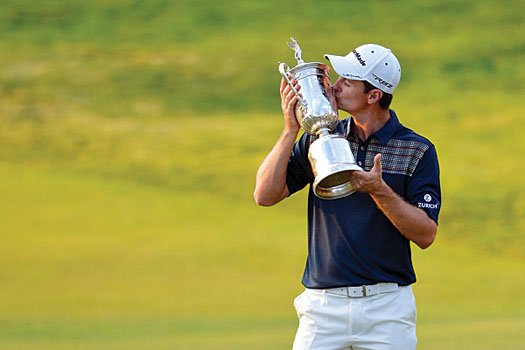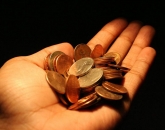
It has been 15 years since you arrived on the scene at Birkdale in the 1998 Open Championship. Does it feel as long ago as that?
Probably at times it feels 25 years since Birkdale, and other times it feels like it was just yesterday. There's a lot of water under the bridge. My learning curve has been steep from that point.
I sort of announced myself on the golfing scene probably before I was ready to handle it. And golf can be a cruel game. And definitely I have had the ups and downs, but I think that ultimately it's made me stronger.
Those downs are well documented but during that time, did you ever envisage yourself going out and winning the US Open?
When I was missing 21 cuts in a row I was just trying to not fade away, really. I just didn't want to be known as a one hit wonder, a flash in the pan.
I believed in myself inherently, deep down I always knew that I had a talent to play the game. And I simply thought that if I put talent and hard work together, surely it will work out in the end.
I think that the other thing that I was able to do during that time was not beat myself further and further into the ground. If I missed a cut by five one week and I missed it by two the next week, I would kind of tell myself that I was getting better. So I think that's how I worked my way out of it a little bit.
How has life changed for you since Merion?
Just a few more demands on my time. But I really don't feel that life has altered that much. My kids are really too young to realise what happened, so, when I go home, I'm just dad. I'm still doing all the menial tasks around the house. It doesn't get me out of doing any of that stuff [laughs].
I think winning a major championship ... at the end of your career when you look back, that's when it really means something. When you're in the midst of what you feel like is your prime, you can't really allow yourself to get sidetracked with the reminiscing and the sort of basking in its glory too much. You've just got to keep your head down. Obviously I'm determined to win more of them and that's my mind‑set for now. But, when I am growing old and looking back on my career, knowing I've won a major championship, it feels very nice there won't be the question of, 'what if?' or,' could I have tried harder to win a major?' There will be no regrets, which I think is a nice place to be in my career right now.
How do you compare the emotions of winning your first major to being part of that winning Ryder Cup team at Medinah in 2012?
I think the celebrations are much more fun when you win as a team. Because everybody's egging each other one and collectively you've achieved something. So the camaraderie of it all is a very unique and very special thing.
You've done it together. It's an amazing moment. And I think that was very, very special. And probably very unique in the way in which we did win it. That's probably something that I'll never feel again.
Click here to see the published article.











